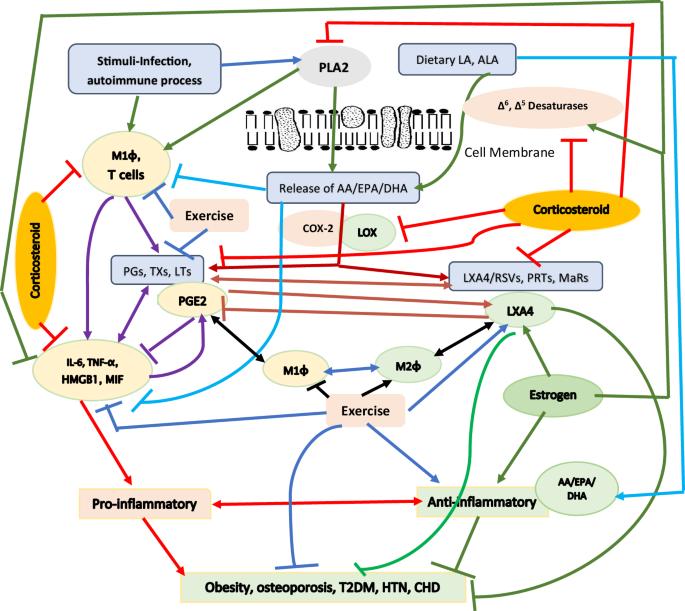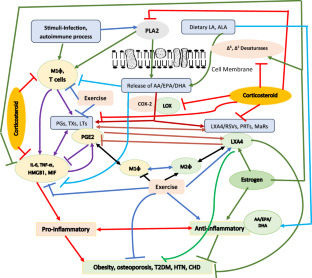Is there a role for essential fatty acids in osteoporosis?
IF 3.6
3区 医学
Q2 NUTRITION & DIETETICS
引用次数: 0
Abstract
Inflammatory markers are inversely associated with bone density, geometry, and strength in postmenopausal women, and elderly subjects suggesting that osteoporosis is a low-grade systemic inflammatory condition. But glucocorticoids that are potent anti-inflammatory compounds instead of arresting/preventing osteoporosis induce osteoporosis. These results indicate that IL-6 and TNF-α, post-menopausal state, and steroids produce osteoporosis by an unidentified mechanism. Pro-inflammatory cytokines, estrogen, and steroids bring about their actions by influencing the metabolism of essential fatty acids (EFAs). I propose that EFAs and their metabolites act as second messengers of actions of corticosteroids, cytokines, and estrogen. This implies that EFAs are of benefit in the prevention and management of osteoporosis. This argument is supported by the observation that plasma phospholipid content of unsaturated fatty acids is decreased in those with osteoporosis. The reports that long-chain metabolites of EFAs including arachidonic acid, docosahexaenoic acid and eicosapentaenoic acid, and lipoxin A4 are of benefit in the prevention and management of osteoporosis lends further support to this proposal.


必需脂肪酸对骨质疏松症有作用吗?
炎症标志物与绝经后妇女和老年人的骨密度、几何形状和强度成反比,这表明骨质疏松症是一种低水平的全身性炎症。但作为强效抗炎化合物的糖皮质激素非但不能阻止/预防骨质疏松症,反而会诱发骨质疏松症。这些结果表明,IL-6 和 TNF-α、绝经后状态以及类固醇通过一种未知的机制产生骨质疏松症。促炎细胞因子、雌激素和类固醇通过影响必需脂肪酸(EFAs)的新陈代谢产生作用。我认为,EFAs 及其代谢产物是皮质类固醇、细胞因子和雌激素作用的第二信使。这意味着 EFAs 对预防和治疗骨质疏松症有益。骨质疏松症患者血浆磷脂中不饱和脂肪酸含量减少的现象也支持这一观点。有报告称,包括花生四烯酸、二十二碳六烯酸和二十碳五烯酸在内的 EFAs 长链代谢物以及脂质毒素 A4 对预防和治疗骨质疏松症有益,这进一步支持了这一观点。
本文章由计算机程序翻译,如有差异,请以英文原文为准。
求助全文
约1分钟内获得全文
求助全文
来源期刊
CiteScore
10.60
自引率
2.10%
发文量
189
审稿时长
3-6 weeks
期刊介绍:
The European Journal of Clinical Nutrition (EJCN) is an international, peer-reviewed journal covering all aspects of human and clinical nutrition. The journal welcomes original research, reviews, case reports and brief communications based on clinical, metabolic and epidemiological studies that describe methodologies, mechanisms, associations and benefits of nutritional interventions for clinical disease and health promotion.
Topics of interest include but are not limited to:
Nutrition and Health (including climate and ecological aspects)
Metabolism & Metabolomics
Genomics and personalized strategies in nutrition
Nutrition during the early life cycle
Health issues and nutrition in the elderly
Phenotyping in clinical nutrition
Nutrition in acute and chronic diseases
The double burden of ''malnutrition'': Under-nutrition and Obesity
Prevention of Non Communicable Diseases (NCD)

 求助内容:
求助内容: 应助结果提醒方式:
应助结果提醒方式:


